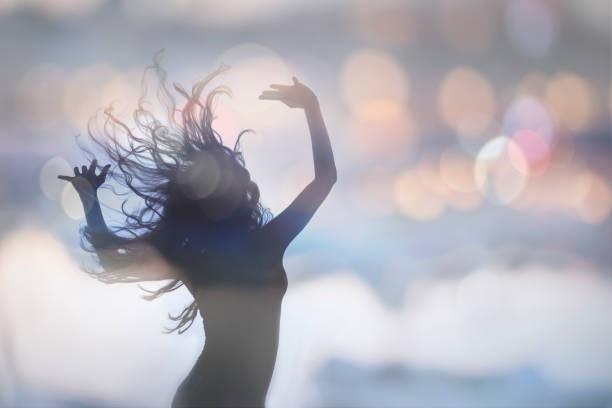
The term trance has been given to a type of modern club dance music which is associated with the taking of the recreational drug Ecstasy as well as other so called club recreational drugs. The dancers are usually seen to be moving in a hypnotic fashion to the music with an inward focus on the euphoric feelings being experienced.
This can also be seen with many tribal sounds and dances from around the world.
If we think of any music being played, does it not in some way alter our state?
Are we not placed into some kind of trance when we listen to music?
-
Music provides an escape from the normal conscious state. If you have seen films of ancient and modern tribes dancing and singing, you must have observed that they were focused on the music and the dancing and the euphoric state it places them in.
-
Even if one is listening to ballads, blues or sad music, the listener is in a different state then the one they would be in if they were not hearing the music.
-
Also, if someone is dancing and their mind is focused on the dance movement and the music alone, is this not a trance state?
-
In fact when someone is said to be 'in the zone', like an athlete, are they not in an altered state and in a trance?
Whether it is an escaped state or altered state, it can still be considered a trance state of some type.
There are many different types of trance states and these altered states do not need music or drugs to be created.
Think about the act of daydreaming. This is an awake altered state. A trance state.
Some hypnotic states are very similar to daydreaming. Daydreaming is a naturally occurring state, so it too can be argued that hypnosis is a naturally occurring state, and not an artificial state suggested in some of the dictionary definitions provided earlier.
-
Wikipedia defines trance as follows:
"Trance denotes a variety of processes, ecstasy, techniques, modalities and states of mind, awareness and consciousness. Trance states may occur involuntarily and unbidden. The term trance may be associated with meditation, magic, flow, and prayer. It may also be related to the earlier generic term, altered states of consciousness, which is no longer used in "consciousness studies" discourse. Trance in its modern meaning comes from an earlier meaning of "a dazed, half-conscious or insensible condition or state of fear", via the Old French transe "fear of evil", from the Latin transīre "to cross", "pass over". An intransitive usage of the verb trance is "to pass", "to travel".
This definition is now obsolete.
Here are a few more trance states to consider:
-
You experience waking hypnosis several times every day. It is a state that occurs naturally when your attention is fixed on one thing, so that it absorbs you to the exclusion of all else.
-
Daydreaming and reverie are perhaps the most common hypnoidal states, as when we look forward to things in the future, re-experience events from the past, or imagine things that may never happen.
-
The hypnagogic and hypnopompic states are hypnoidal states we experience in the transition between wakefulness and sleep.
Hypnagogic - This is the state you experience as you go to sleep.
Hypnopompic - This is the state you experience as you wake up.
-
Isn't sleep walking a trance state?
-
Have you ever read a book or watched a film and were so engrossed in what you were reading or watching? If someone said something trivial to you, you may have heard them but would it have registered? If they said the house was on fire would that have registered? This is very similar to what it is like in a hypnotic state.
-
Also, if you drive a car or have been on a journey, arriving at your destination, but not remembering the journey that you have just taken; this too is similar to being in a hypnotic state.
Are any of these artificial states? Or natural states?
Did you know that you can hypnotise animals? Why would that be? Do animals go in to trance states naturally or artificially?
Do some research on the Internet and see if you can see some animals experiencing hypnosis naturally and artificially?
